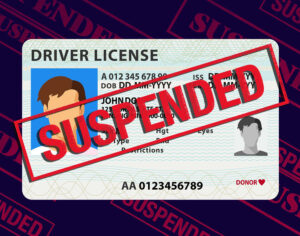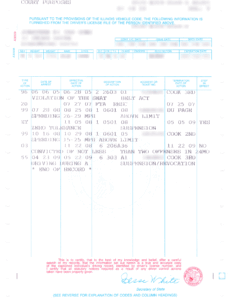The Impact of DUI Convictions on Your Driving Record and How to Mitigate It
A DUI conviction driving record can have serious and lasting consequences. From license suspension to skyrocketing insurance rates, the effects can follow you for years. Understanding how a DUI impacts your driving history—and how to reduce the damage—is essential for drivers in Kansas and Missouri.
How a DUI Conviction Affects Your Driving Record

In both Kansas and Missouri, a DUI conviction is recorded on your driving record and can remain there for an extended period. Here’s how it can impact your driving history:
1. Points on Your License
Most states, including Kansas and Missouri, use a point system to track traffic violations. A DUI conviction typically results in a substantial number of points being added to your license. In Missouri, for instance, a first-time DUI offense adds 8 points to your driving record. Accumulating too many points can result in license suspension or revocation.
2. License Suspension or Revocation
A DUI conviction often leads to the immediate suspension or revocation of your driver’s license. In Kansas, a first-time DUI can lead to a 30-day suspension followed by restricted driving privileges. In Missouri, your license may be suspended for 90 days or longer, depending on the specifics of your case.
3. Permanent Mark on Your Record
Unlike minor traffic offenses, a DUI is often classified as a misdemeanor or even a felony in severe cases. This means it can stay on your driving record for years, and in some cases, indefinitely. In Kansas, a DUI remains on your record for life but may be eligible for expungement after 10 years for a first offense. Missouri law allows for expungement of a first-time DUI after 10 years, provided no other alcohol-related offenses have occurred.
4. Increased Insurance Premiums
Insurance companies view DUI convictions as high-risk behavior. As a result, you may face significantly increased premiums or even difficulty obtaining coverage. A DUI on your record can cause your insurance rates to double—or more—for several years.
5. Employment Consequences
Many employers, especially those in transportation or logistics, perform background checks that include driving records. A DUI conviction can limit job opportunities or lead to termination, particularly if driving is a key part of your job responsibilities.
How to Mitigate the Impact of a DUI Conviction

While the consequences of a DUI conviction are severe, there are several steps you can take to mitigate the long-term effects on your driving record and your life:
1. Hire an Experienced DUI Attorney
The most critical step is securing legal representation. An experienced DUI attorney, such as those at Kitchin Law Firm, can help you understand your rights and options. In some cases, they may be able to get charges reduced or dismissed based on procedural errors, lack of evidence, or issues with the arrest process.
2. Apply for a Restricted or Hardship License
If your license is suspended, you may be eligible for a restricted or hardship license. This allows you to drive to essential locations such as work, school, or medical appointments. An attorney can assist with filing the proper paperwork and making a compelling case.
3. Attend DUI Education or Treatment Programs
Courts often require attendance at DUI education or substance abuse treatment programs. Completing these programs not only fulfills legal obligations but also shows the court that you’re taking responsibility and working to change your behavior—this can have a favorable impact on your case.
4. Request an Expungement
If eligible, you can petition the court to expunge your DUI conviction from your record. In Missouri, you must wait 10 years and have no subsequent alcohol-related offenses. In Kansas, the process is similar. Expungement can help you move forward without the DUI haunting your background checks and job applications.
5. Drive Safely and Avoid Further Violations
One of the most effective ways to demonstrate rehabilitation is to maintain a clean driving record after the DUI conviction. Avoid any traffic infractions, drive responsibly, and stay sober behind the wheel. Over time, a clean record will help reduce the negative impact of a DUI.
6. Consider SR-22 Insurance
Some states require drivers with DUI convictions to obtain SR-22 insurance—a special certificate that proves you carry the minimum required auto insurance. While it’s more expensive, maintaining SR-22 insurance without lapses is often a requirement for license reinstatement.
7. Monitor Your Driving Record
Regularly checking your driving record helps ensure that the information is accurate. You can request a copy from the Kansas or Missouri DMV and confirm that any penalties or restrictions are correctly documented. If you’ve completed requirements like DUI classes or license reinstatement, make sure your record reflects it.

Conclusion
A DUI conviction is a serious matter with far-reaching consequences, particularly on your driving record. However, understanding the implications and taking proactive steps can significantly reduce its long-term impact. By working with an experienced DUI attorney, attending court-mandated programs, applying for restricted licenses, and maintaining a clean driving history, you can begin to repair the damage and regain control of your life.
If you’re facing DUI charges in Kansas or Missouri, don’t navigate the legal system alone. Contact the Kitchin Law Firm for compassionate, experienced, and dedicated legal support. Their team understands the complexities of DUI law and will fight to protect your rights, your record, and your future.









